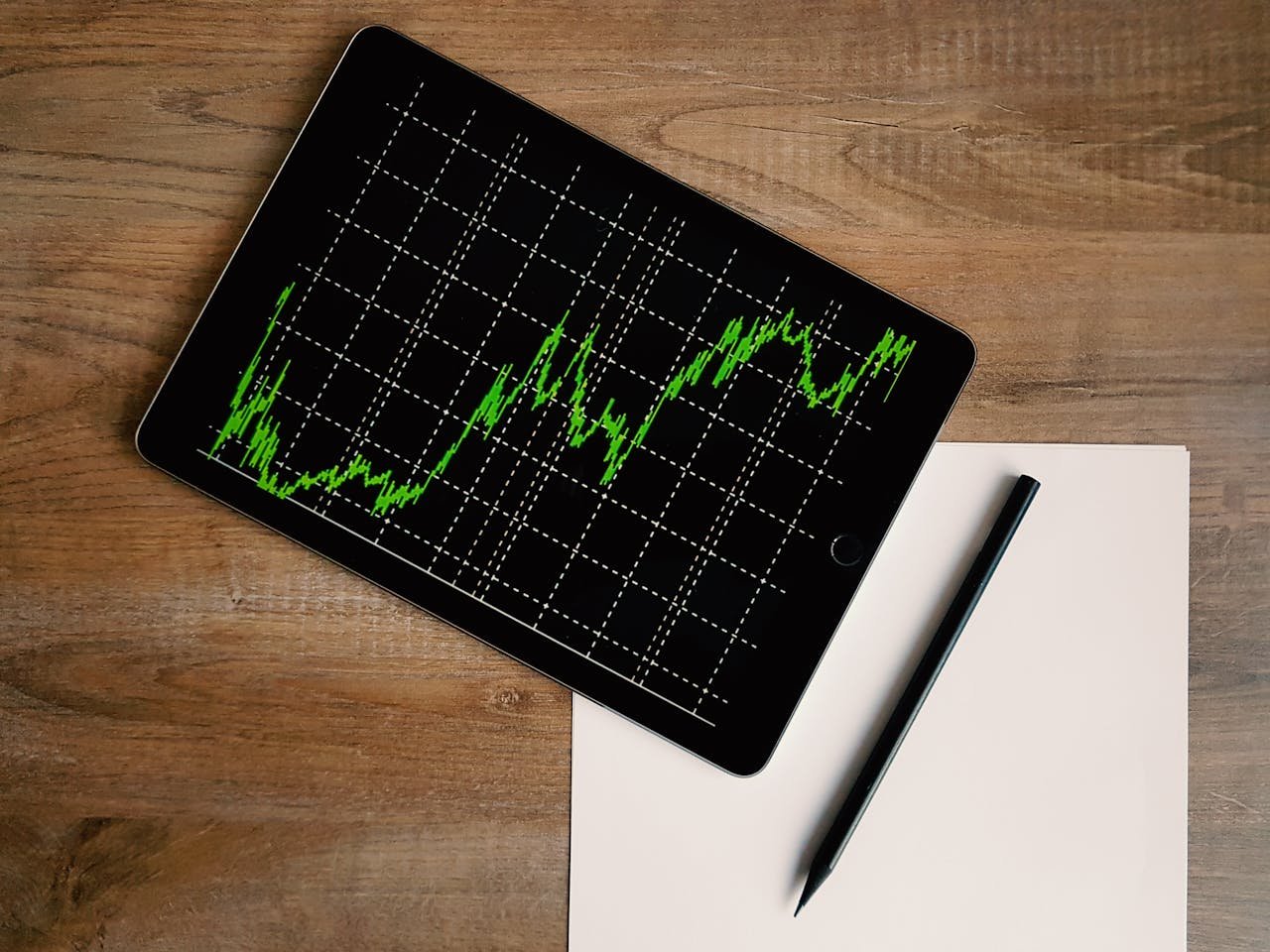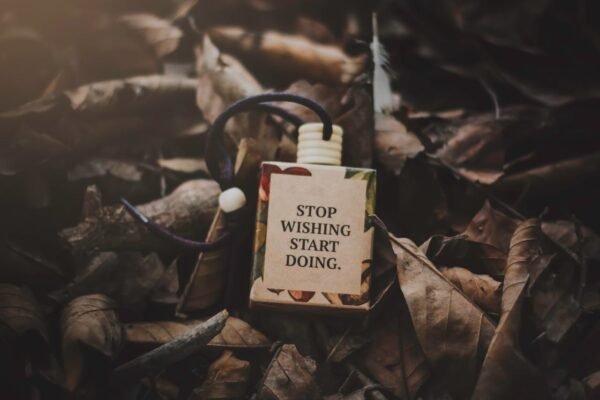Growth often feels painful at the start because it pushes us out of our comfort zones. This hurt shows that real change is happening, even if it feels tough at first. When we grow, we face new challenges that test us mentally, emotionally, and sometimes physically.
I’ve noticed that the early struggle is a sign that I’m moving forward, not falling behind. The discomfort is a natural part of learning and developing new skills or habits. It’s like a muscle needing time to adjust before it gets stronger.
That initial pain can feel overwhelming, but it usually means progress is on the way. Knowing this helps me stay patient and keep going even when things get hard.
Key Takeaways
- Growth starts with discomfort because it means change is happening.
- Early struggles are a sign that you are learning and improving.
- Patience during hard times leads to long-term progress.
Understanding Growth and Discomfort
Growth often brings feelings of unease because it pushes us out of our comfort zones. This discomfort happens for clear reasons linked to how we handle change, face challenges, and how our brain and body respond to new experiences.
Why Change Feels Uncomfortable
Change messes with what we know. When things are different, my brain has to work harder to figure out what’s safe and what’s not. This extra effort can cause stress or anxiety.
I think about it like learning a new skill. At first, everything feels awkward because I don’t understand the new rules or environment. That awkward feeling is just my mind trying to adjust.
Our brains prefer habits. So when habits break, it triggers worry until we build new routines. This is why I feel discomfort before I get used to something new.
How Challenges Trigger Growth
Challenges force me to stretch my abilities. When I face something tough, I find parts of myself I didn’t know existed. These moments of struggle help me get stronger and smarter.
Growth happens outside comfort zones. If everything is easy, my skills don’t improve. The difficulty makes me try different ways of thinking or acting, which leads to learning.
I remind myself that struggling is part of growth. It means I’m not standing still but moving forward, even if it feels hard or uncomfortable.
The Science Behind Growing Pains
My brain and body react to new experiences with a kind of “alert mode.” Stress hormones rise, and that can make me feel tense or uneasy. This is a natural reaction to unfamiliar situations.
Neuroscience shows that growth changes brain pathways. This rewiring can cause mental discomfort, similar to muscles aching after exercise. The ache means something new is happening inside.
These growing pains may seem unpleasant, but they signal progress. My body and brain are adapting to new challenges, which is necessary for personal growth.
The Psychology of Early Struggles
When we start something new, our mind often feels unsettled. It’s normal to have doubts and worries. These feelings make the beginning tough but are part of the process that helps us grow.
Fear of the Unknown
I find the fear of the unknown one of the hardest parts to face. When I don’t understand what lies ahead, my mind fills with “what ifs.” This fear can stop me from trying new things or pushing through early challenges.
It’s usually not the actual risk but the thoughts of possible failure that cause anxiety. When I remind myself that uncertainty is normal and not a sign of something bad, it becomes easier to keep going. Recognising that fear is just a feeling, not a fact, helps me act anyway.
Mental Barriers to Progress
Mental barriers are like walls built by my own thoughts. I sometimes believe I’m not good enough, or that I’ll never succeed. These ideas slow me down more than external problems do.
I’ve noticed I often limit myself with negative self-talk. Changing that means catching myself when I think, “I can’t.” Instead, saying, “I’ll try” opens the door to progress. Small wins also break down these barriers and build my confidence step by step.
Physical and Emotional Aspects of Growth
Growth often feels uncomfortable because it affects both the body and mind in tough ways. The physical strain and emotional struggle come hand in hand, making change hard but necessary.
Physical Discomfort in New Experiences
I’ve noticed that when I push my body in new ways, it often protests. Muscle soreness after a workout or tiredness from extra walking shows how my body is adjusting. This discomfort means my muscles and joints are getting stronger, but it still hurts at first.
Trying new physical activities can also cause awkwardness. For example, learning a sport or dance can make me feel clumsy and unbalanced. This physical discomfort is normal and usually fades as my body learns and adapts.
Emotional Reactions to Setbacks
Emotionally, growth can feel frustrating. When things don’t go well or I fail, it stings. I sometimes feel disappointed or worried that I’m not good enough. Those feelings make me want to quit.
But setbacks also teach me patience. I have to remind myself that mistakes don’t mean I’m failing. They’re just part of learning. Feeling upset at first is normal, but pushing through those feelings helps me get better.
Examples of Growth Being Painful
Changing how we do things or stepping into something new often feels uncomfortable at first. This discomfort usually happens because we are trying to do things we haven’t done before or moving away from what feels safe.
Learning New Skills
When I try to learn a new skill, I always feel clumsy at the start. It’s as if my brain and hands don’t work together properly yet. For example, when I first learned to play the guitar, my fingers hurt, and I kept making mistakes.
Mistakes are a normal part of learning. It’s painful because I have to accept that I don’t know everything and be patient with myself. At times, it feels frustrating to improve so slowly, but that awkward phase is necessary before I can get better.
Career Moves and Job Changes
Switching jobs was stressful for me. I had to leave familiar people and routines behind. Starting in a new place meant I didn’t know how things worked, and I wasn’t confident.
There was pressure to prove I was capable. I also felt nervous about making new friends and understanding my tasks properly. Even though it was tough at first, this discomfort pushed me to grow and learn faster.
Turning Pain Into Progress
Growth often feels tough because it tests who we are. But the struggle brings chances to become stronger and notice even the smallest steps forward. These ideas help me change pain into progress.
Building Resilience Through Challenges
When I face hard moments during growth, I try to remind myself that these challenges build my strength. Each problem I work through teaches me something new about patience and effort. It’s not about skipping pain but learning to keep going despite it.
I focus on small ways I can push myself, like trying again after failure or dealing with discomfort. Over time, this makes me more resilient. Problems don’t feel as scary because I know I’ve dealt with tough stuff before and grown from it.
Celebrating Small Wins
I’ve learned to catch even the tiniest successes in difficult times. When I reach a small goal or make a bit of progress, I take a moment to feel proud. These wins keep me motivated when things get hard.
I keep track of these moments, sometimes by writing them down or sharing them with someone. It’s a way to remind myself that growth is happening, even if it’s slow. This helps me stay positive and focused on what’s next.
Long-Term Benefits of Pushing Through
When I push through tough times, I notice clear changes in how I handle challenges and how I see myself. These changes don’t come quickly but they build slowly over time, shaping who I become.
Personal Development Over Time
When I keep going despite the pain, I learn a lot about myself. I find out what I can really handle and where I need to improve. Each challenge feels like a step forward in my skills and knowledge.
It’s not just about getting better at one thing. Over time, I become more patient, more disciplined, and better at solving problems. That growth doesn’t happen overnight, but it adds up if I stick with it.
Improved Confidence and Growth Mindset
Every time I push through discomfort, I prove to myself that I can face hard situations. That builds confidence. The more I do it, the less scary new challenges feel.
This also helps me adopt a “growth mindset”. Instead of thinking “I can’t do this,” I start thinking, “I can improve if I keep trying.” This makes me more open to learning and less afraid of failure.
Key points:
- Confidence grows when I face discomfort.
- Believing I can improve changes how I handle setbacks.
Myths and Misconceptions About Growth
People often think growth means big, sudden changes or that struggling means you are failing. Both ideas miss important parts of how growth really works.
Growth Isn’t Always Dramatic
I used to believe that growth had to be huge or obvious, like a big achievement overnight. But growth often happens in small, slow steps. It might look like building one good habit or learning a tiny new skill.
Sometimes, growth is almost invisible day-to-day. You might not notice how much you’re improving because it’s gradual. That quiet progress adds up, and later you see a real difference.
Expecting sudden changes can lead to frustration. I’ve found that appreciating small wins helps keep me motivated and focused.
Struggle Doesn’t Mean Failure
At times, I’ve thought struggling meant I was doing something wrong. But struggle is actually part of the process. When learning something new, discomfort and challenges are normal.
Struggle shows you’re pushing beyond your comfort zone. It means your brain is working and adapting. Not every struggle is bad or a sign you should quit.
When I embraced struggle as part of growth, it became easier to keep going during tough times. I learned that it’s okay to fail sometimes as long as I keep trying.
Final Thoughts on Embracing Growth
I’ve learned that growth can be painful at first, but it’s a necessary step. You can’t improve without facing some struggle. The discomfort means you’re stretching yourself.
It helps to remember a few things when growth feels tough:
- It’s normal to feel unsure or scared.
- Small steps add up over time.
- Making mistakes is part of learning.
I try to be patient with myself as I grow. When I accept that pain and discomfort are part of progress, it feels less overwhelming.
Sometimes, growth means losing something old so you can gain something better. That can be hard to face, but it’s part of the process.
If I focus too much on how uncomfortable things are, I forget why I started. Keeping the end goal in mind helps me push through the hard bits.
In the end, growth is about moving forward, even when it’s not easy. Embracing the pain means I’m on the right path.
Conclusion
I’ve learned that growth almost always feels uncomfortable at the start. It’s like stepping into something new that stretches you in ways you didn’t expect. That initial pain or struggle is part of the process.
Sometimes, it feels easier to stay where things are safe and familiar. But growth asks us to push through this discomfort, even when it’s tough. That’s why the beginning can hurt.
It helps to remember a few things when growth feels painful:
- It’s normal to feel uneasy or unsure.
- Struggles mean you are changing or learning.
- This phase doesn’t last forever.
When I remind myself of this, it becomes easier to face the hard parts. Growth isn’t always fun, but it’s a sign I’m moving forward. I try to hold on to that, even on tough days.



